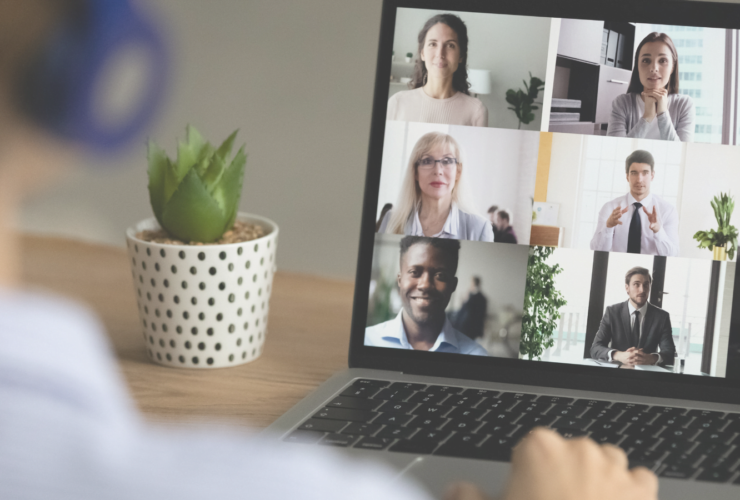Welcome to your Roadmap for delivering a sustainable conference or event.
Firstly, let’s take a quick look at what ‘sustainability’ means.
Sustainable development has been defined as “development that meets the needs of the present without compromising the ability of future generations to meet their own needs”.
When people think of sustainability issues, environmental concerns, and perhaps the so-called ‘Blue Planet effect’ are often at the forefront of our collective consciousness. However, according to the UN definition, in order to achieve sustainable development, there are three core elements to be considered. These are; economic growth, social inclusion and environmental protection. You can read more about the United Nations Sustainable Development Goals here.
Corporate Social Responsibility
Corporate Social Responsibility (CSR) plans, policies and targets are key to the way businesses consider, and measure, their contribution to the wider sustainability agenda. When working with clients, the key messages and priorities of your business form an important part of how we plan your event.
If you take a look at your company’s plan you should be able to identify clear goals to; ensure a sustainable future for the business, support the local community, the region and further afield; a commitment to an ethical supply chain; depending on the size of your business you may have an Anti-Slavery Policy; plus methods to measure and improve social, economic and environmental impacts of all business activities.
At first, the idea of a carbon-neutral or wholly sustainable event might feel daunting. However, there are plenty of practical steps you can take that will make a difference.
In this article, we will look at five key areas to focus on when planning your conference, or event, and how the actions you take will contribute to the achievement of your company’s Corporate Social Responsibility Plan.
Getting large audiences together for a conference is one of the most effective ways for organisations to educate, inspire and communicate a consistent message. When like-minded people get together, new ideas are formed, and innovation happens.
With the massive growth of video-conferencing it would be easy to suggest there is no longer a need for large conferences or events. Let’s just do everything ‘virtually’.
In the last 12 months no one can deny the business benefits to be achieved by using on-line meeting facilities. However, there are so many benefits to meeting face to face which are lost in the ‘virtual’ world. Sustainability for conferences and events is not about stopping them altogether, it’s about delivering events that have positive outcomes.
Five Key Steps for a Sustainable Conference
Venue
Your choice of venue is key to the overall sustainability of your event. When you are looking at potential locations things to consider are:
Location
- How does the location work for your anticipated delegates?
- Is it in a central location with good public transport links?
- If not, can you arrange eco-cabs or environmentally friendly transport?
- Can delegates travelling from one location car-share?
- For outdoor events, is the venue subject to any environmental protection, for example on SSSI or archaeological grounds?
- Are there deals available for train & group travel
Policies
- What are your venue’s policies? Ask to see H&S, Sustainability, Environmental and Procurement policies and, if you feel necessary, the evidence of implementation.
- What are their employment standards?
- Are you restricted by things like using their preferred suppliers? If so, are members of their supply chain required to reduce their carbon footprint by methods such as supplying local produce or using fuel-efficient or electric vehicles?
Energy & Water
- Does the venue make use of energy efficient systems like motion sensor lighting or low-energy heating and cooling systems?
- How do the Housekeeping Team reduce waste of energy and water?
- Is the building energy-efficient? Can you see an up-to-date EPC?
- What water saving initiatives are in place – for example dual flush toilets?
- Do they supply bottled water in plastic or refillable glass bottles?
Access and Equality
- How accessible is the venue for guests with mobility issues?
- Are the following facilities available and of a good standard;
– Braille and floor signage for blind or visually impaired guests
– Disabled toilets, with emergency alarms?
– Unisex baby changing facilities
– Automatic Doors
Catering
Many of the above policy and energy points also apply to catering suppliers so it’s worth checking how potential suppliers manage and measure their performance to defined standards.
Here are some other things to think about.
- Is the caterer a social enterprise, small community business or do they have innovative CSR policies? For example, employing and training young care leavers or ex-offenders?
- Are they local to the event venue, thereby reducing the carbon footprint of transport to the venue?
- How will they prepare, serve and maintain food in a safe manner?
- Are they committed to using locally sourced produce?
- Is the menu prepared to include; seasonal produce, free range or Fairtrade products, healthy options without reliance on highly processed foods?
- Are specific dietary needs offered as standard or do they need to be pre-ordered?
Waste and Recycling
These days most of us are familiar with segregating waste in the home, workplace and even in shopping centres. Yet the same doesn’t always apply in conferencing venues. However, it doesn’t need to be a complicated task.
During the event
- Have clearly signed, waste stations. These should include defined bins for different waste, enabling delegates to sort waste quickly and easily throughout the duration of the event.
- Ensure that you have accurate numbers for catering purposes to reduce the amount of food waste.
- Consider how meals and refreshments will be served, paying attention to the use of plastic bottles, single use plastic wrappers and disposable plates or cutlery. Instead can you use cardboard boxes for takeaway lunches and reusable or wooden cutlery.
- What will happen to the leftovers? Is there a local charity you could donate excess food to?
After the event
The removal of waste from a conference venue is expensive. However, it is costlier to have it removed and sent to landfill than to have it sent for recycling.
Event Materials
For the purposes of this article, Event Materials includes stands, sets and staging, all of which have significant implications for the sustainability credentials of events.
As with choosing your venue and caterer, your choice of stands, sets and staging suppliers should start with a check of their business policies and supply chain standards. Once you are satisfied that you have chosen an ethical supplier with a responsible approach to production & consumption of materials, it’s time to look at the details.
Stands, Sets and Staging
- What materials are used in the production of their stands and sets?
- Does your chosen supplier only use wood from FSC certified sources for example?
- Choose modular systems that can be reused and reconfigured.
- Actively avoid the use of single-use materials, such as carpeting, within the sets and stands.
- During the design process, think of ways to ensure the longevity of branded items. For example, don’t use dates on printed products or consider using projection of branding which can be easily updated in the future.
Handouts and Event Information
Think before you print!
In the days of mass e-communication and cloud technology, do you really need to design, print and transport boxes of handouts and other event information?
Where possible, make use of online portals, mobile apps or links to shared cloud storage areas. If this is not an option, why not consider giving each delegate a USB stick when they register, containing everything that would usually be printed? You won’t just save money and reduce the use of resources; your delegates will be happy to have less to carry around throughout the conference – and on their journey home!
If materials must be printed, check the credentials of your supplier and that paper from responsible sources is used.
Marketing & Communication
In our digital age, the benefits of embracing digital marketing and communication for the planning, booking and delivery of your conference are a foregone conclusion. By utilising electronic planning tools, centralised booking systems and online team communication facilities you can streamline many of the complex processes at play when managing a large event.
Using social media, email marketing and stakeholder communication presents you with the opportunity to reach a far wider audience than could be achieved using more traditional methods.
If you’re doing great things that will make your event as sustainable as possible, make sure you shout about it. Issue press releases that share what your approach to the conference means for the local area, people, communities and businesses.
When mixing digital and traditional marketing tools, be responsible for the production and consumption of those materials. Choose your supplier in the same way you have considered other suppliers, think about the accessibility of your materials, where they will be used and what you want them to achieve.
Giveaways
There are a few simple questions to ask when you start to plan the giveaways you choose for your event.
- Do you really need giveaways?
- Who made it?
- Where was it made?
- What’s it made of and how is it packaged?
- What will happen to it after the conference?
If, after thinking about these points you still think it’s vital to have giveaways, take time to consider the items you choose. Having worked hard to create a sustainable conference, you don’t want a giveaway that sends a conflicting message to your delegates!
For more information
The world of conferencing and event management is seeing significant change, and will undoubtedly evolve considerably in the future.
The Compleat Conference team take proactive steps to ensure we are mindful of sustainability in our own activities, as well as when planning and managing events for clients. We work closely with our clients to take a joint responsibility for the future of our planet and help them to maximise the sustainability of their events.
For more information about how the Compleat Conference team can help you achieve your CSR and Sustainability goals whilst enjoying memorable event, contact heather@compleatgroup.co.uk.




